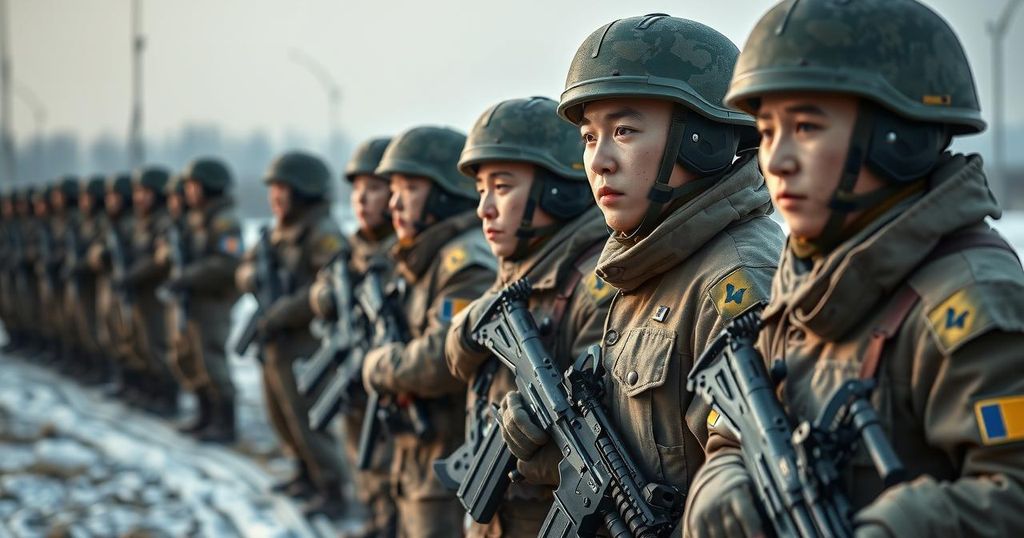North Korean soldiers have been utilized as bait by Russian forces to lure Ukrainian drones, according to a soldier’s diary. Approximately 300 North Korean troops have died in clashes since their involvement began. Discussions are anticipated between Donald Trump and Vladimir Putin, while Germany investigates potential Russian espionage involving drone surveillance near military sites. Ukraine’s President Zelensky is open to exchanging captured North Korean soldiers for Ukrainian POWs, indicating ongoing negotiation avenues amid warfare.
Recent reports have emerged indicating that North Korean soldiers are being strategically utilized by Russian forces as bait to draw out Ukrainian drones on the battlefield. A diary belonging to a North Korean soldier elucidates the harrowing tactics deployed, detailing orders for troops to position themselves perilously close, within seven meters, to the drones with the intent of having other Russian soldiers eliminate them. The diary features a crude illustration depicting operational maneuvers aimed at deceiving the drones.
Additionally, South Korea’s intelligence agency disclosed that approximately 300 North Korean troops have perished, while 2,700 have sustained injuries in the ongoing conflict since their deployment last year. In light of these developments, former British defense ministers have suggested that the UK should contribute to a post-war peacekeeping initiative in Ukraine. Meanwhile, discussions have been anticipated between Donald Trump, the soon-to-be US president, and Russian President Vladimir Putin, amidst increasing tensions in Eastern Europe.
Germany is also investigating suspected Russian espionage related to drone sightings near military bases, and Sweden has announced the testing of novel drone swarm technologies in collaboration with defense industry entities. Furthermore, Ukrainian President Volodymyr Zelensky has expressed willingness to facilitate the exchange of captured North Korean soldiers for Ukrainian prisoners of war, signaling a potential avenue for negotiations that could alter the dynamics of the conflict.
The ongoing conflict in Ukraine post-2022 has seen various international actors engage in military, diplomatic, and intelligence operations. Russian military strategies have included utilizing unconventional methods, such as exploiting foreign troops, to secure battlefield advantages. The involvement of North Korean soldiers highlights the complex geopolitical entanglements and military collaborations arising from the war. Additionally, espionage activities and technological advancements in warfare have become key focal points for nations surrounding the conflict, while diplomatic relations, particularly between major powers like the United States and Russia, remain tenuous.
In summary, the conflict between Ukraine and Russia continues to reveal alarming military tactics, particularly in the exploitation of North Korean troops. The casualty rate among these soldiers raises concerns about the effectiveness of their deployment. Furthermore, the anticipation of diplomatic efforts between the United States and Russia signifies ongoing engagement at the highest levels, while European nations address their security and technological strategies in light of the conflict. The potential for prisoner exchanges signifies a critical development in humanitarian considerations amid warfare.
Original Source: www.independent.co.uk






